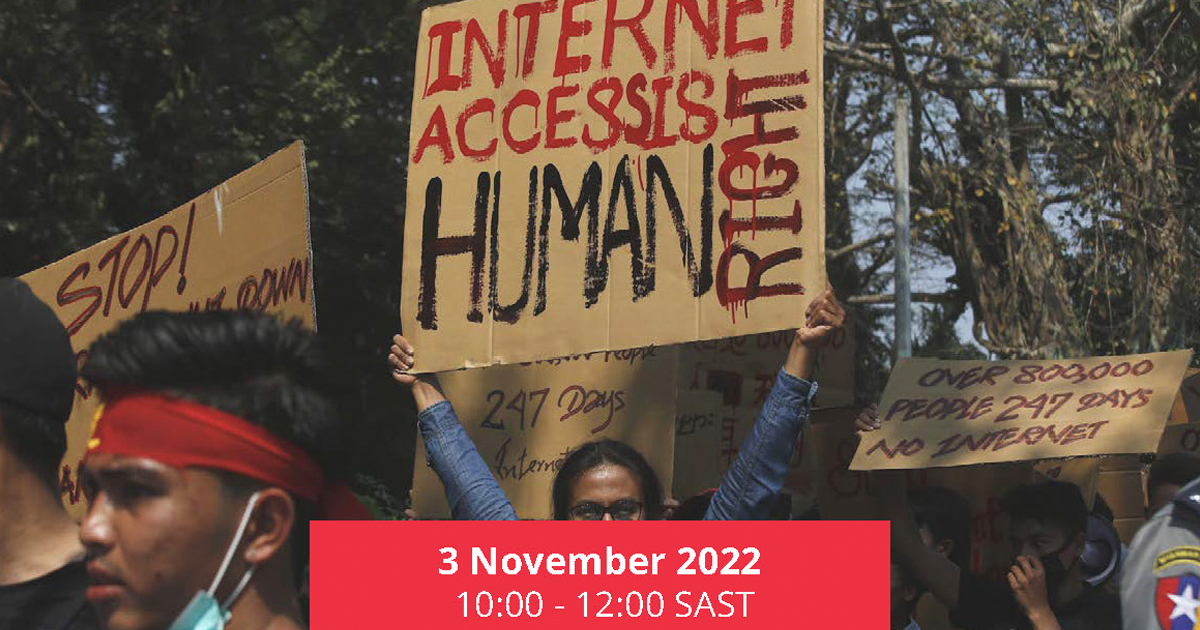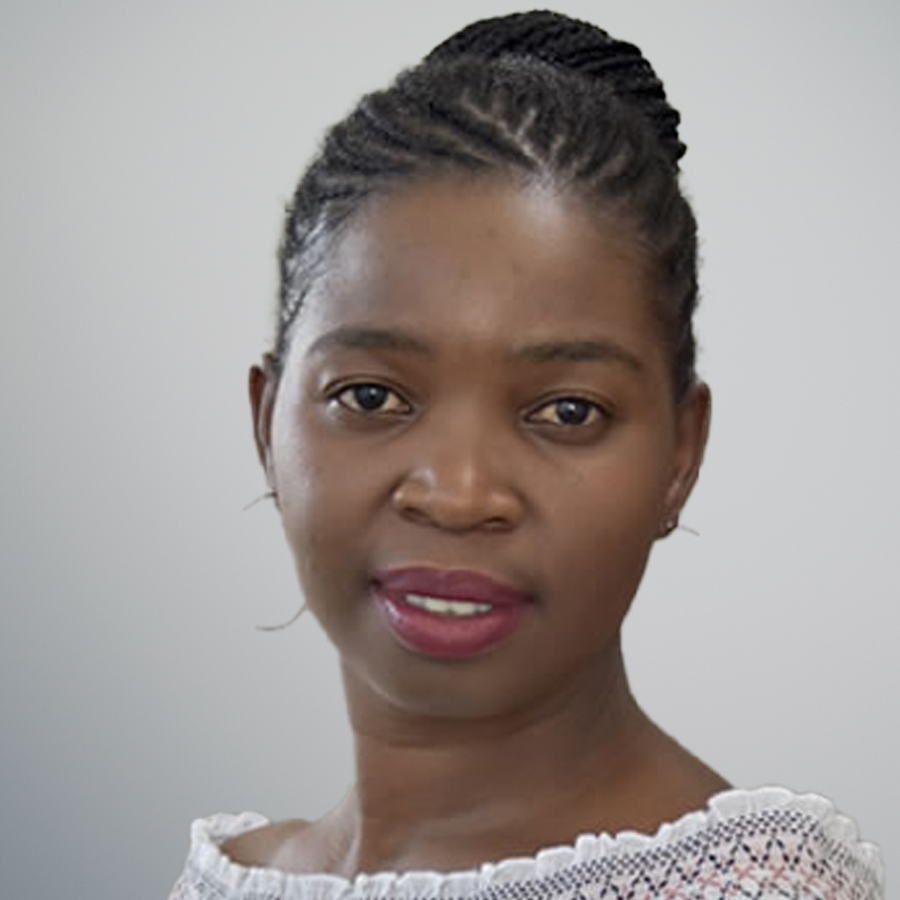In the last few years Africa’s sub-regional courts have passed judgments that buttress the importance of internet freedom. On 17 July 2022 the Court of Justice of the Economic Community of West African States (ECOWAS Court) found that the Nigerian government’s 7-month Twitter ban violated article 9 of the African Charter on Human and Peoples’ Rights and article 19 of the International Covenant on Civil and Political Rights (ICCPR).
Against the backdrop of these decisions and the significance of internet freedom for human rights and business, the Centre for Human Rights and the Gordon Institute of Business Science (GIBS) Media Leadership Think Tank, both from the University of Pretoria, will host a high level panel on internet shutdowns, business and human rights in Africa on 3 November 2022.
Event Details
Dates: 3 November 2022
Time: 10.00-12.00
Online: (Zoom)
The webinar will tackle the following issues:
- What are the roles of business and civil society in ensuring alignment with the decisions of African regional courts and tribunals, noting the serious economic impact of internet and social media restrictions on all businesses, particularly SMMEs?
- How do we understand the intersection of African business and human rights?
- What options exist for telecommunications, internet and other digital platform operators who are instructed by digital authoritarians to implement internet shutdowns and restrictions on social media?
- How can the UN and African human rights mechanisms be used to empower business and civil society to challenge digital authoritarianism?
- What mechanisms do the citizens of Southern Africa have to challenge internet freedom violations with the SADC Tribunal moribund?
- What steps have been taken to revive the Tribunal following the South African Constitutional Court declaring South Africa’s decision on the Tribunal to be unconstitutional?
- How can civil society organisations in the SADC region align to campaign for the revival of the SADC Tribunal?
Panel:
Speakers
- Nomvuyiso Batyi
CEO of Association of Communication Technologies (ACT) - Arnold Kwesiga
Manager: Business and Human Rights Unit
Centre for Human Rights - Lloyd Kuveya
Assistant Director
Centre for Human Rights - Mojirayo Ogunlana-Nkanga
Human Rights Lawyer
Moderators:
- Hlengiwe Dube
Manager: Expression, Information and Digital Righys Unit
Centre for Human Rights - Michael Markovitz
GIBS
Background
The 2019 Declaration of Principles on Freedom of Expression and Access to Information in Africa and the UN Guiding Principles on Business and Human Rights
The internet is both the glue and backbone of modern business. The continuance of factors that compromise internet freedom by state actors is a worrisome trend on the continent. Notwithstanding, the adequacy and affordability of ICT remains a critical issue for many small and medium business enterprises, increasing internet shutdowns and exploitative tech company practices present new threats. Digital authoritarianism cannot co-exist with the 2019 Declaration of Principles on Freedom of Expression and Access to Information in Africa (the Declaration) places an obligation on states to recognise universal, equitable, affordable and meaningful access to the internet.
Similarly, the UN Guiding principles on Business and Human Rights enjoins corporate entities including tech companies to operate in ways that do not interfere with or have adverse impacts on the enjoyment and realisation of fundamental human rights.
In this regard, it is the obligation of States to, amongst other duties, adopt measures that:
- develop independent and transparent regulatory mechanisms for effective oversight;
- improve information and communication technology and internet infrastructure for universal coverage;
- establish mechanisms for regulating market competition to support lower pricing and encourage diversity;
- promote local access initiatives such as community networks for enabling the increased connection of marginalised, unserved or underserved communities; and
- facilitate digital literacy skills for inclusive and autonomous use.
In guaranteeing internet freedom, the Declaration also calls on States to desist from engaging in, or condoning any disruption of access to the internet and other digital technologies for segments of the public or an entire population. It is on this basis that internet shutdowns and other network disruptions are viewed as human rights violations and ultra vires international human rights law and standards. International human rights frameworks including the UNGPS clearly lay out the linkages between all human rights and the responsibilities of corporate actors to respect human rights. This responsibility extends to undertaking due diligence mechanisms to assess actual and potential negative impacts of their actions and to ensure that they do no harm as an overarching principle.
Objectives of the Webinar
- To spotlight how internet freedom is threatened in several African countries
- To examine the responsibilities of business entities with regards internet shutdown and other network disruptions.
- To assess the cost of internet shutdowns and network disruptions.
- To examine the impact of internet shutdowns and social media restrictions on AfCFTA
- To discuss the role of sub-regional bodies’ judicial mechanisms in internet shutdowns and the possibility of the revival of the SADC Tribunal.
For more information, please contact:
Tel: +27 (0) 12 420 3810
marystella.simiyu@up.ac.za
Tel: +27 (0) 12 420 4199
hlengiwe.dube@up.ac.za




